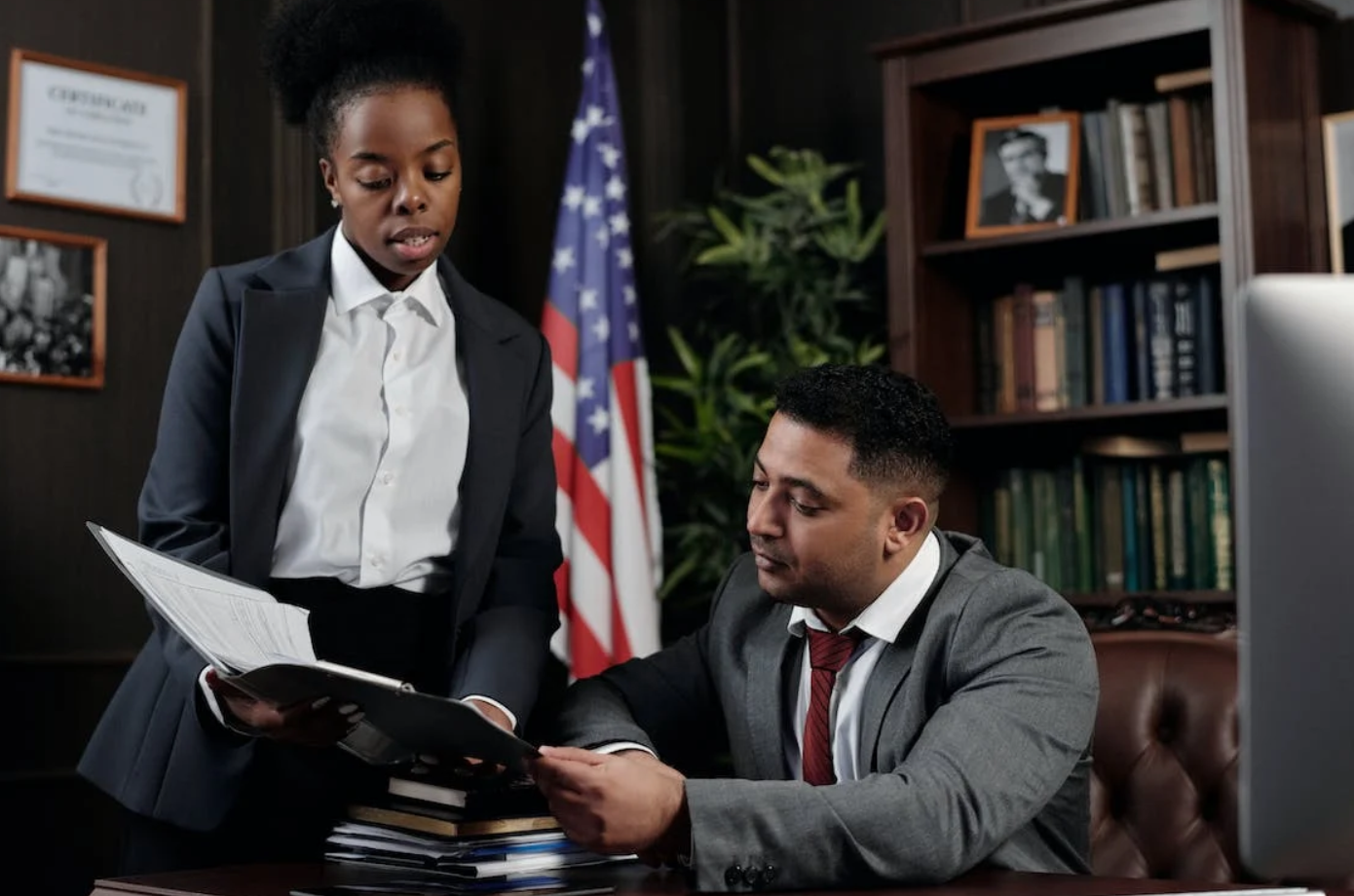Through collaborative teamwork, meticulous planning, and unwavering advocacy, truck accident lawyers are dedicated to securing equitable compensation for their clients.
Multi-state trucking accidents pose significant challenges due to their complexity and jurisdictional intricacies. Legal action across multiple states requires specialized knowledge and expertise. Truck accident lawyers play a critical role in navigating these complexities, advocating for their clients’ rights, and pursuing just compensation. This article explores the intricacies of managing multi-state trucking accidents and the vital role of truck accident lawyers in providing effective representation.
Understanding Multi-state Trucking Accidents
Nature of Multi-state Trucking Accidents
Multi-state trucking accidents involve commercial vehicles that traverse state boundaries, often resulting in collisions occurring in multiple jurisdictions. These accidents pose unique challenges in terms of legal jurisdiction, liability determination, and coordination of legal proceedings.
Complexity of Legal Issues
Jurisdictional Challenges
Determining the appropriate jurisdiction for filing a lawsuit can be complex in multi-state trucking accidents. Factors such as the location of the accident, the residence of the parties involved, and the base of the trucking company all play a role in determining jurisdiction.
Diverse Legal Regulations
Each state has its own set of laws and regulations governing trucking accidents, including statutes of limitations, liability standards, and insurance requirements. Navigating these diverse legal frameworks requires a comprehensive understanding of interstate commerce laws and regulations.
Challenges in Evidence Collection
Spreading Evidence
Evidence relevant to multi-state trucking accidents may be dispersed across multiple jurisdictions, including accident reports, witness statements, and electronic data from onboard recording devices. Coordinating the collection and preservation of this evidence is crucial for building a strong case.
Cross-Examination of Witnesses
Witness testimony may vary depending on where the accident occurred, leading to inconsistencies in accounts and challenges during cross-examination. Truck accident lawyers must carefully manage these discrepancies to present a cohesive and compelling case.
Effective Coordination and Representation
Legal Team Collaboration
Multi-jurisdictional Expertise
Truck accident lawyers with experience in multi-state cases often collaborate with legal teams across different jurisdictions to leverage their collective expertise. This collaborative approach ensures comprehensive representation and maximizes the chances of a favorable outcome.
Resource Allocation
Coordinating legal action across multiple states requires strategic resource allocation, including personnel, technology, and financial resources. Truck accident lawyers carefully manage these resources to optimize efficiency and effectiveness in handling the case.
Strategic Planning
Case Assessment

Truck accident lawyers conduct thorough case assessments to identify legal issues, evaluate liability, and develop a strategic plan of action. This includes analyzing relevant laws and regulations in each jurisdiction, assessing potential damages, and formulating a litigation strategy.
Negotiation and Litigation
Settlement Negotiations
Truck accident lawyers engage in settlement negotiations with insurance companies and other parties to seek fair compensation for their clients. They leverage their knowledge of multi-state laws and regulations to advocate for maximum recovery of damages.
Litigation Management
In cases where settlement negotiations fail to yield a satisfactory outcome, truck accident lawyers proceed to litigation. They manage all aspects of the litigation process, including filing lawsuits, conducting discovery, and representing their clients in court.
Client Advocacy and Support
Client Communication
Truck accident lawyers maintain open and transparent communication with their clients throughout the legal process. They provide regular updates on case developments, explain legal options, and address any concerns or questions their clients may have.
Emotional Support
Multi-state trucking accidents can have devastating consequences for victims and their families. Truck accident lawyers offer compassionate support and guidance, helping their clients navigate the emotional and practical challenges they may face during the recovery process.
In-Depth Analysis of Jurisdictional Challenges
Jurisdictional challenges in multi-state trucking accidents are among the most complex legal hurdles to overcome. Understanding where to file a lawsuit requires a detailed analysis of several factors. Each factor plays a critical role in determining the jurisdiction, which can significantly impact the case’s outcome.
Factors Influencing Jurisdiction
- Location of the Accident: The primary factor in determining jurisdiction is where the accident occurred. This is typically the default jurisdiction unless other compelling factors dictate otherwise.
- Residence of the Parties: The states where the involved parties reside can influence jurisdiction. If the driver and the trucking company are based in different states, this can complicate jurisdictional decisions.
- Trucking Company’s Base: The state where the trucking company is headquartered often has a say in jurisdiction. If the company’s primary operations are in a different state from where the accident occurred, this can lead to jurisdictional disputes.
- Contractual Agreements: Sometimes, the contracts between the trucking company and its clients include jurisdictional clauses specifying where legal disputes should be handled.
Legal Precedents and Case Law
Analyzing previous legal cases involving similar jurisdictional issues can provide guidance. Courts often rely on past decisions to resolve jurisdictional disputes, making it essential for truck accident lawyers to be familiar with relevant case law.
Diverse Legal Regulations and Their Impact
Each state has its unique set of regulations governing trucking accidents. These regulations can significantly affect the outcome of a case, making it essential for lawyers to understand and navigate these laws effectively.
Statutes of Limitations
The statute of limitations varies from state to state, dictating the time frame within which a lawsuit must be filed. Failing to file within this period can result in the case being dismissed, regardless of its merits.
- Varied Time Frames: Some states have shorter statutes of limitations for personal injury claims, while others may allow more extended periods.
- Tolling Provisions: Certain circumstances, such as the plaintiff being a minor or the defendant being out of state, can toll or pause the statute of limitations.
Liability Standards
States have different standards for determining liability in trucking accidents. Understanding these standards is crucial for developing an effective defense strategy.
- Comparative Negligence: In states with comparative negligence laws, the plaintiff’s compensation is reduced by their percentage of fault. Some states follow pure comparative negligence, while others follow modified comparative negligence with a threshold.
- Contributory Negligence: A few states still follow contributory negligence rules, where any fault on the part of the plaintiff can bar recovery altogether.
Insurance Requirements
Trucking companies must comply with varying state insurance requirements. These differences can affect the compensation available to accident victims.
- Minimum Coverage: States mandate different minimum insurance coverage levels for commercial vehicles.
- Uninsured Motorist Coverage: Some states require uninsured motorist coverage, which can be crucial in accidents involving underinsured or uninsured parties.
Evidence Collection and Management
Effective evidence collection is critical in building a strong case in multi-state trucking accidents. This involves not only gathering but also managing evidence across multiple jurisdictions.
Coordination Across Jurisdictions
Collecting evidence from multiple states requires meticulous coordination. Lawyers must work with local authorities, accident reconstruction experts, and other professionals to gather comprehensive evidence.
- Accident Reports: Obtaining official accident reports from different states can be challenging due to varying procedural requirements.
- Witness Statements: Lawyers must track down and interview witnesses who may be located in different states, ensuring their testimonies are consistent and reliable.
Preservation of Electronic Data
Modern trucks are equipped with electronic logging devices (ELDs) that record vital data such as driving hours, speed, and braking patterns. Preserving this data is crucial for building a robust case.
- Data Retrieval: Lawyers must work with experts to retrieve and analyze electronic data from onboard recording devices.
- Chain of Custody: Maintaining a clear chain of custody is essential to ensure the data’s integrity and admissibility in court.
Strategic Planning and Case Management
Developing a comprehensive strategy is vital for effectively managing multi-state trucking accident cases. This includes a detailed assessment of the case and formulating a litigation plan.
Initial Case Assessment
A thorough initial assessment helps identify key legal issues and develop a strategic plan.
- Legal Issues Identification: Lawyers must identify potential legal issues, such as jurisdictional challenges, liability disputes, and regulatory compliance.
- Liability Evaluation: Assessing liability involves analyzing the accident’s circumstances, the driver’s actions, and the trucking company’s practices.
Developing a Litigation Strategy
Formulating a litigation strategy involves several steps, from analyzing relevant laws to preparing for potential court proceedings.
- Analyzing Laws and Regulations: Lawyers must analyze the relevant laws and regulations in each jurisdiction to understand how they apply to the case.
- Assessing Potential Damages: Evaluating potential damages involves calculating economic and non-economic losses, such as medical expenses, lost wages, and pain and suffering.
- Litigation Preparation: Preparing for litigation involves gathering evidence, identifying expert witnesses, and developing legal arguments.
Negotiation and Litigation Management
Effective negotiation and litigation management are critical components of truck accident lawyers’ roles.
Engaging in Settlement Negotiations
Settlement negotiations aim to resolve the case without going to trial, saving time and resources for all parties involved.
- Negotiating with Insurance Companies: Lawyers must negotiate with insurance companies to seek fair compensation for their clients. This involves presenting evidence and arguing for a favorable settlement.
- Maximizing Recovery: Lawyers leverage their knowledge of multi-state laws to advocate for maximum recovery of damages.
Managing Litigation
When settlement negotiations fail, litigation becomes necessary. Managing litigation involves several key tasks.
- Filing Lawsuits: Lawyers must file lawsuits in the appropriate jurisdictions, ensuring all legal requirements are met.
- Conducting Discovery: The discovery process involves exchanging information between parties, including documents, depositions, and interrogatories
Conclusion
Navigating multi-state trucking accidents entails intricate legal hurdles that demand specialized expertise. Sioux Falls Truck Accident Lawyer are instrumental in orchestrating strategic coordination and representation spanning multiple jurisdictions. Through collaborative teamwork, meticulous planning, and unwavering advocacy, truck accident lawyers are dedicated to securing equitable compensation for their clients while holding negligent parties accountable in the aftermath of multi-state trucking accidents.


Join the conversation!